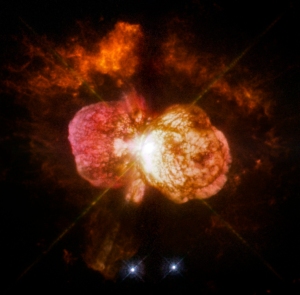I’m a very critical, analytical thinker. I always want to know what’s actually happening. I tend to understand religious texts this way.
But I once spoke to a friend, an English major, who said that religious texts—especially the Bible—need to be understood as pieces of literature, and not just as historical records or religious instructions. Otherwise, the Bible’s counter-intuitive organization, non-linear narrative and liberal use of allegory can seem to undermine it’s authority. Unless we are willing to grant an author a degree of creative license, we risk missing his or her point.
I took this perspective to heart. It opened up for me worlds I never knew existed—worlds full of truths not always expressible succinctly or via formulaic descriptors. But it also raised an interesting question for me. It caused me to wonder about how our minds understand fictional texts, and whether or not we understand non-fiction texts differently. Do we experience the “realness” of a historical text when we read about something that we’re told actually happened, and is that experience any different than that accompanying a fictional text? Does the knowledge that something I’m reading actually happened change the way I perceive it than if I were told the text was fictional?
This is somewhat abstract, so let me put it this way: When we read Edward Gibbon’s Decline and Fall of the Roman Empire, do we really grasp the “realness” of the content and understand it differently than we understand, say, The Lord of the Rings? Is George Washington more “real” a character to me than Sherlock Holmes?
I tried to express this to my friend—the same one from above. He didn’t get it. George Washington was real, Sherlock Holmes was not. Simple as that, he said.
But what I’m getting at is something more fundamental. That is, we only know about George Washington what we’ve read about him, and we can’t ever be totally sure what we read actually happened. Sure, most of it probably happened, but I’ve definitely read some stories that I either doubt actually happened, or found out later to be mere legend. Even the stuff that probably did happen, I only know about from books and historical interpretations, which I know are necessarily less-than-perfect accounts. On top of that, I’m never fully aware of the context and nuances behind a particular story about George Washington, so my read of the history is extremely limited and probably very inaccurate.
So when I read about George Washington, I’m really just reading a story. It’s up to me how much I believe and how much I let it influence how I see the world.

An inferior mirage in the Mohave Desert. The black figures–trees, posts, and such–appearing between the desert floor and the mountain backdrop don’t actually exist. The image is merely a mirage.
My question arises when I consider whether I read fictional texts the same way. No, I don’t believe Sherlock Holmes actually existed, but sometimes I get lost in a book and become totally engrossed in the story. My blood pressure rises as the characters find themselves in dire situations. I fret when they suffer. I’m relieved when they come out on top.
But why? Sherlock Holmes isn’t real. Isn’t it stupid to be so influenced by a fictional story? Most would say no. They’d say these stories are supposed to affect us that way. Otherwise, why read them? But that leads to the last part of my question: Because we are often so influenced by fictional characters, we often—consciously or subconsciously—let them change the way we see things. Our perspective on real things happening around us is changed by what a fictional character did in a fictional story. We might seek to carry on his or her message in our own lives. We might encourage other people to read about him or her and hopefully see what we saw and be changed. We might use such characters in discussions with friends about right and wrong, good and bad, love and war.
In that way, they can be just as “real” as historical characters. I think they can even be more real, in that they have a greater influence on our understanding of real things.
Do we process fiction the same way we process non-fiction, historical records? Do we actually believe history happened, or is it just one of the many stories we know about that we choose to tell ourselves actually happened? I’m not saying we do or should doubt that history ever happened. What I mean is that I’m not sure we really understand the gravity of history differently than we understand the history of Narnia or Middle Earth.

Eta Carinae can be seen without a telescope in the night sky. But it’s possible that this star no longer exists.
I’m not sure how to answer my question. I do wager it has something to do with how much we want to believe a story we read. If we’re pretty sure something isn’t true that we definitely don’t want to be true, we choose not to believe it and don’t let it influence how we think about the world. But if something could possibly be true that we want to be true, we’re more apt to let it change the way we see things. We take it more seriously—as seriously as we should take records of the past.
Circling back to my first paragraph, this has tons of implications for religion (and belief in general). I sometimes wonder if we only actually believe those things that change the way we see things. For example, just because a man has read the four gospels and says he believes they are true doesn’t mean he actually does unless his life changes as a result—changes in the way the gospels’ writers obviously intended. On the other hand, a man who has read the gospels and claims to not believe their accounts, but whose life obviously changed as a result (again, changed in the way the gospels’ writers intended), does believe what he read whether he says so or not. So it’s not so much a matter of what we’re told about a particular story, especially when it comes to ones that aren’t necessarily settled as fact or fiction, but what we want to believe.
